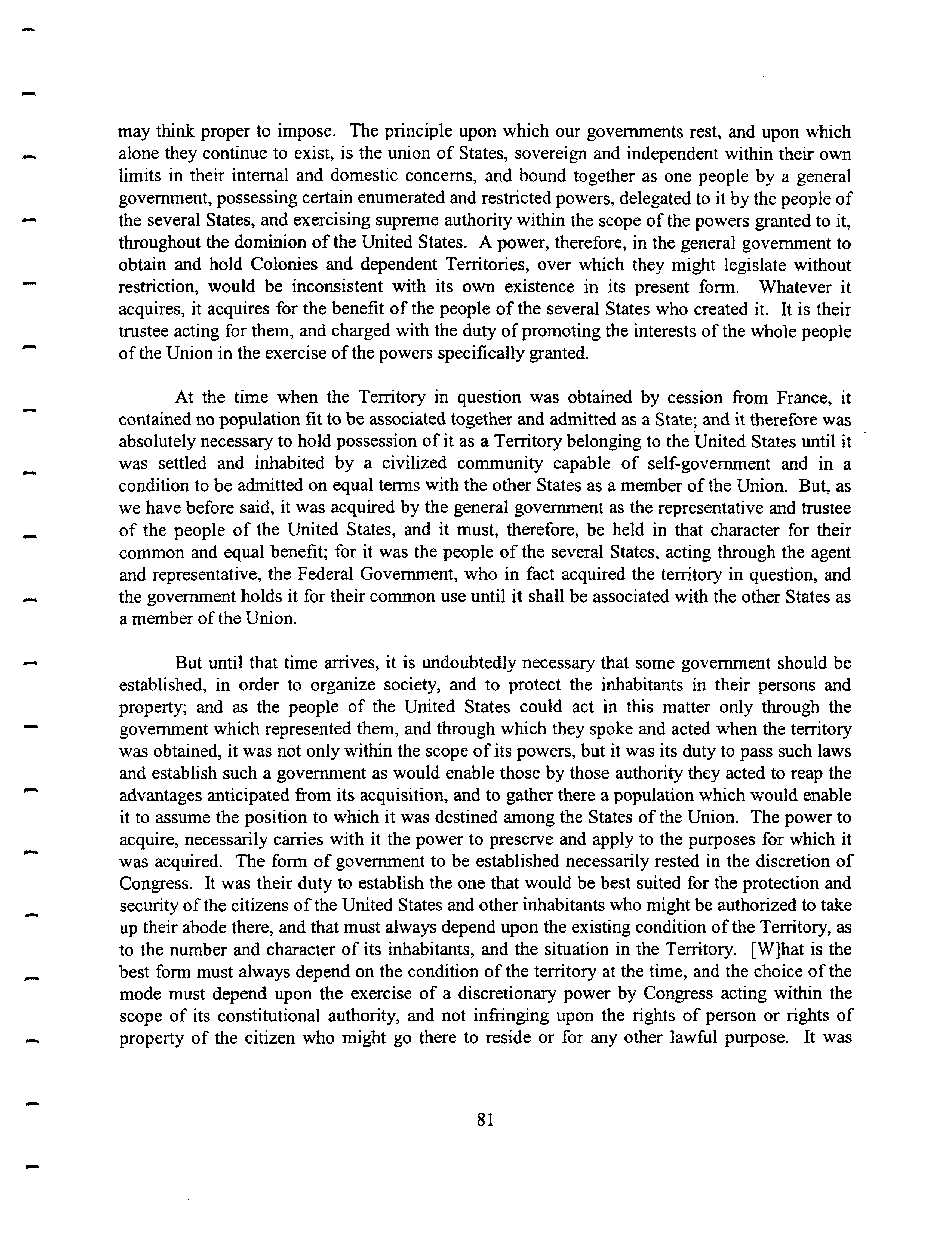|
may think proper to impose. The principle upon which our governments rest, and upon which
alone they continue to exist, is the union of States, sovereign and independent within their own
limits in their internal and domestic concerns, and bound together as one people by a general
government, possessing certain enumerated and restricted powers, delegated to it by the people of
the several States, and exercising supreme authority within the scope of the powers granted to it,
throughout the dominion of the United States. A power, therefore, in the general government to
obtain and hold Colonies and dependent Territories, over which they might legislate without
restriction, would be inconsistent with its own existence in its present form. Whatever it
acquires, it acquires for the benefit of the people of the several States who created it. It is their
trustee acting for them, and charged with the duty of promoting the interests of the whole people
of the Union in the exercise of the powers specifically granted.
At the time when the Territory in question was obtained by cession from France, it
contained no population fit to be associated together and admitted as a State; and it therefore was
absolutely necessary to hold possession of it as a Territory belonging to the United States until it
was settled and inhabited by a civilized community capable of self-government and in a
condition to be admitted on equal terms with the other States as a member of the Union. But, as
we have before said, it was acquired by the general government as the representative and trustee
of the people of the United States, and it must, therefore, be held in that character for their
common and equal benefit; for it was the people of the several States, acting through the agent
and representative, the Federal Government, who in fact acquired the territory in question, and
the government holds it for their common use until it shall be associated with the other States as
a member of the Union.
But until that time arrives, it is undoubtedly necessary that some government should be
established, in order to organize society, and to protect the inhabitants in their persons and
property; and as the people of the United States could act in this matter only through the
government which represented them, and through which they spoke and acted when the territory
was obtained, it was not only within the scope of its powers, but it was its duty to pass such laws
and establish such a government as would enable those by those authority they acted to reap the
advantages anticipated from its acquisition, and to gather there a population which would enable
it to assume the position to which it was destined among the States of the Union. The power to
acquire, necessarily carries with it the power to preserve and apply to the purposes for which it
was acquired. The form of government to be established necessarily rested in the discretion of
Congress. It was their duty to establish the one that would be best suited for the protection and
security of the citizens of the United States and other inhabitants who might be authorized to take
up their abode there, and that must always depend upon the existing condition of the Territory, as
to the number and character of its inhabitants, and the situation in the Territory. [W]hat is the
best form must always depend on the condition of the territory at the time, and the choice of the
mode must depend upon the exercise of a discretionary power by Congress acting within the
scope of its constitutional authority, and not infringing upon the rights of person or rights of
property of the citizen who might go there to reside or for any other lawful purpose. It was
81
�
|

